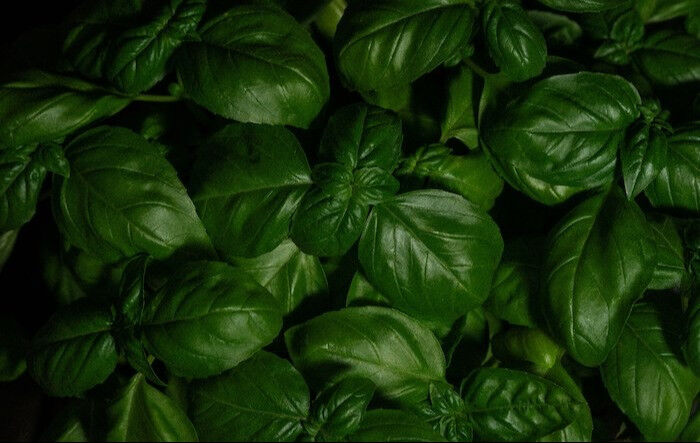The Essential Role of Basil in Italian Cuisine

Basil, or "basilico" in Italian, is a cornerstone of Italian cuisine, known for its aromatic and slightly peppery flavor. This fragrant herb, native to the Mediterranean, holds a special place in Italian cooking, not just for its flavor but also for its cultural significance. Let's explore the various ways basil is used in Italian cuisine, its historical roots, curative properties, and how it shines in classic dishes at Mama Florence.
1. How is Basil used in Traditional Italian Dishes?
Basil is most famously associated with Pesto alla Genovese, a classic sauce from the Liguria region. This vibrant, green sauce, made from fresh basil leaves, garlic, pine nuts, Parmesan cheese, and extra virgin olive oil, pairs perfectly with pasta like trofie or trenette.
Another iconic dish where basil is essential is the Caprese salad, which combines fresh mozzarella, ripe tomatoes, and basil leaves, all drizzled with extra virgin olive oil.
At Mama Florence, we also celebrate basil in our classic Tuscan dishes like Panzanella, a traditional bread salad made with tomatoes, cucumbers, red onions, and basil, dressed with olive oil and vinegar. The addition of basil adds a fresh, vibrant note that perfectly complements the other ingredients.
2. Where does Basil come from?
Basil has been used in Mediterranean cooking and medicine for centuries. Originally from India, basil traveled to the Mediterranean through ancient trade routes and became integral to Italian cuisine during the Roman Empire. Over the centuries, it has remained a staple in Italian kitchens, valued for its flavor and symbolic meaning.
3. What are the Curative Properties of Basil?
Basil is not only prized for its culinary uses but also for its curative properties. Traditionally used in folk medicine for its anti-inflammatory, antibacterial, and digestive benefits, basil is rich in essential oils like eugenol, which can help reduce inflammation and support digestive health. Basil's antioxidant properties also help protect the body from oxidative stress, making it a healthful addition to your diet.
4. Basil and the Italian Cooking Philosophy
Italian cooking emphasizes fresh, high-quality ingredients, and basil embodies this philosophy. Whether as a garnish, a main ingredient in sauces, or a flavor enhancer in soups like minestrone, basil elevates any dish it touches. It pairs beautifully with staples of Italian cuisine, such as tomatoes, garlic, and olive oil, making it indispensable in any Italian kitchen.
5. Basil at Mama Florence
At Mama Florence cooking school, we honor basil in our cooking classes, where participants learn to create authentic Italian dishes that highlight this essential herb. From making fresh pesto to crafting the perfect Panzanella, our classes provide a hands-on experience in using basil to bring out the best in Italian cuisine. We teach the importance of ingredient selection, timing, and traditional methods, ensuring that every dish is a true reflection of Italy's culinary heritage.
6. Conclusion
Basil's role in Italian cuisine is irreplaceable. It symbolizes the simplicity, freshness, and respect for quality that define Italian cooking. Whether you're a home cook or a culinary enthusiast, learning to use basil in your kitchen is a step towards mastering the art of Italian cuisine. At Mama Florence, we offer the perfect environment to explore these traditions and bring the flavors of Italy to your home.
By understanding basil's historical significance, curative properties, and culinary versatility, you can enhance your cooking and appreciate the deep cultural roots that make Italian cuisine so special.
